U.S. and World History
1861 – Frankenstein; or, The Modern Prometheus was published. The book, by 21-year-old Mary Wollstonecraft Shelley, is frequently called the world’s first science fiction novel.
Mary Shelley created the story on a rainy afternoon in 1816 in Geneva, where she was staying with her husband, the poet Percy Bysshe Shelley, and their friend Lord Byron. Byron proposed they each write a gothic ghost story, but only Mary Shelley completed hers. Although serving as the basis for the Western horror story and the inspiration for numerous movies in the 20th century, the book Frankenstein is much more than pop fiction. The story explores philosophical themes and challenges Romantic ideals about the beauty and goodness of nature.
1861 – The Constitution of the Confederate States of America was adopted.
1862 – President Abraham Lincoln issued War Order No. 3, a measure making several changes at the top of the Union Army command structure. Lincoln created three departments, placing Henry Halleck in charge of the West, John C. Fremont in command of troops in the Appalachian region, and George McClellan in charge in the East.
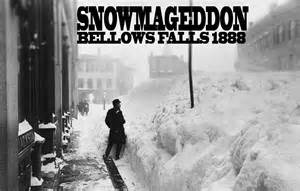
1888 – The Great Blizzard of ’88, one of the worst blizzards in American history struck the Northeast, killing more than 400 people and dumping as much as 55 inches of snow in some areas. New York City ground to a near halt in the face of massive snow drifts and powerful winds from the storm.
But New York was not the only area to suffer. Along the Atlantic coast, hundreds of boats were sunk in the high winds and heavy waves. The snowfall totals north of New York City were historic: Keene, New Hampshire, received 36 inches; Bellows Falls, Vermont was hit with 35 inches; New Haven, Connecticut, got 45 inches; and Troy, New York, was hit by 55 inches of snow over 3 days. In addition, thousands of wild and farm animals froze to death in the blizzard.
1941 – President Franklin Roosevelt effectively ended American neutrality in World War II when signed into law the Lend-Lease Bill, providing war supplies to countries fighting the Axis.
Five minutes after the bill was signed, Roosevelt approved a list of undisclosed quantities of war materials to be transferred at once from the American Army and Navy to the British and the Greeks.
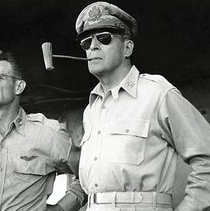
1942 – After struggling against great odds to save the Philippines from Japanese conquest, U.S. General Douglas MacArthur abandoned the island fortress of Corregidor under orders from President Franklin Roosevelt. Left behind at Corregidor and on the Bataan Peninsula were 90,000 American and Filipino troops, who, lacking food, supplies, and support, would soon succumb to the Japanese offensive.
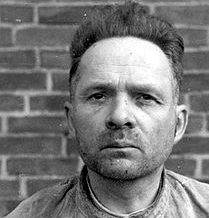
1946 – Rudolf Höss, the first commandant of Auschwitz concentration camp, was captured by British troops. Affidavits that Höss made while imprisoned in Nuremberg included this:
I commanded Auschwitz until 1 December 1943, and estimate that at least 2,500,000 victims were executed and exterminated there by gassing and burning, and at least another half million succumbed to starvation and disease, making a total dead of about 3,000,000. This figure represents about 70% or 80% of all persons sent to Auschwitz as prisoners.
Since later estimates of the number who died are around one million, a substantially lower figure, it has been speculated that Höss exaggerated his estimate as a result of the beatings and threats to which he had been subjected shortly before he gave this affidavit.
On April 2, 1947, he was hanged next to the crematorium of the former Auschwitz I concentration camp.
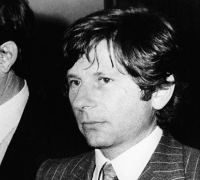
1977 – Film director Roman Polanski was charged with raping a 13-year-old girl at the home of Hollywood star Jack Nicholson.
In August 1977, Polanski pleaded guilty to having unlawful sex with the 13-year-old girl. In December of that year he went to prison for a 90-day psychiatric study but was released after 42 days. Knowing that he faced a possible jail sentence, Polanski jumped bail and fled to France in February 1978.
1989 – COPS, a documentary-style television series that followed police officers and sheriff’s deputies as they went about their jobs, debuted on Fox.
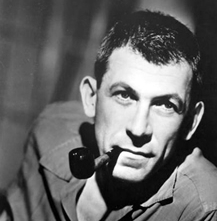
1992 – Director/Screenwriter Richard Brooks (directed and wrote the screenplay for Blackboard Jungle, Cat On A Hot Tin Roof, In Cold Blood, Looking For Mr. Goodbar, and Elmer Gantry, for which he won an Academy Award for Adapted Screenplay) died from congestive heart failure at the age of 79.
1993 – Janet Reno was unanimously confirmed by the Senate to be the nation’s first female attorney general.
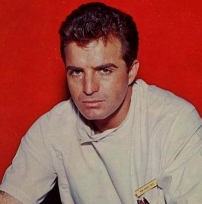
1996 – Actor Vince Edwards (best known for playing the title role on television’s Ben Casey) died of pancreatic cancer at the age of 67.

2002 – Two columns of light soared skyward from ground zero in New York as a temporary memorial to the victims six months after the Sept. 11 attacks.
2004 – Ten bombs exploded in quick succession across the commuter rail network in Madrid, Spain, killing 191 people and wounding more than 2,000 in an attack linked to al-Qaida-inspired militants.

2009 – 17-year-old Tim Kretschmer went on a shooting spree at the Albertville-Realschule school in Winnenden, Germany, killing nine students and three teachers.
Dozens of police arrived at the scene but Kretschmer escaped and fatally shot a gardener outside a psychiatric hospital opposite the school. He then hi-jacked a car (taking the driver hostage) and fled 20 miles to a car dealership in Wedlingen. Once inside he murdered two more people before a gun battle began with police and he was shot in both legs.
He left the rear of the building and ran across a yard to a neighboring business complex, where he shot and injured two police officers in an unmarked police vehicle. After calmly reloading his pistol, Kretschmer shot himself in the head as police cornered him.
The night before the massacre, Kretschmer had issued a warning in an Internet chatroom but no one took him seriously. “I’ve had enough. I’m fed up with this horrid life. Nobody knows what I’m capable of. I am scared, I have weapons here, and I will go to my former school tomorrow and then I will really do a grilling. Possibly I get away, so keep your ears open, you will hear from me tomorrow. Just remember the name of the place, Winnenden.”
2011 – Wisconsin Gov. Scott Walker signed a measure to eliminate most union rights for public employees, a proposal which had provoked three weeks of protests.
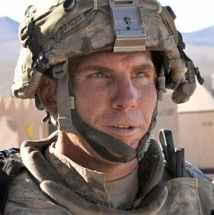
2012 – Sixteen Afghan villagers – mostly women and children – were shot dead as they slept, by U.S. Army Staff Sgt. Robert Bales.
In order to avoid the death penalty, Bales pleaded guilty to 16 counts of murder and six counts of assault and attempted murder in a plea deal. On August 23, 2013, he was sentenced to life in prison without parole.
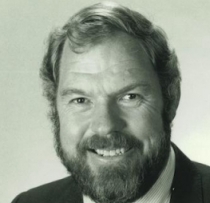
2010 – Merlin Olsen died of peritoneal mesothelioma at the age of 69. Olsen spent his entire 15-year career in the NFL as a defensive tackle with the Los Angeles Rams and was an inductee of the College Football Hall of Fame and Pro Football Hall of Fame.
As a sportscaster, he was NBC’s lead football analyst for a decade. As an actor, he played the role of farmer Jonathan Garvey on Little House On The Prairie before starring in the title role of Father Murphy).
Olsen was a 1962 graduate (summa cum laude) of Utah State University. He was named to the State of Utah’s Sports Hall of Fame, the Utah State University Sports Hall of Fame, and in 2009, the football field at Romney Stadium was named Merlin Olsen Field.
Compiled by Ray Lemire ©2015 RayLemire.com. All Rights Reserved.
You may not, under any circumstances, reproduce, record, publish, republish, post, transmit, publicly display, publicly exhibit or distribute any articles or photographs on RayLemire.com without obtaining the express written consent of the Operator.